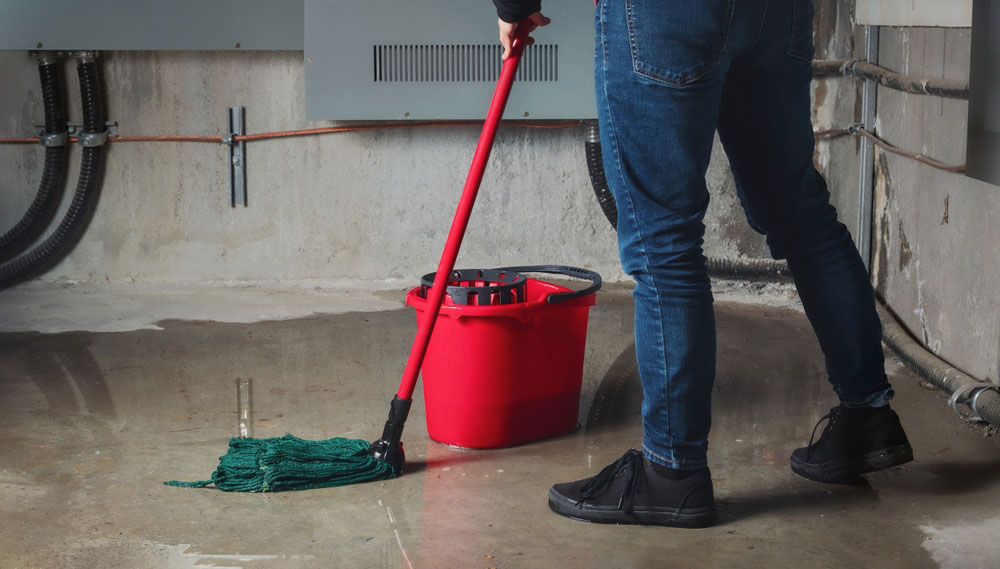A damp or wet basement might seem like a minor inconvenience at first—something to deal with later. But ignoring basement water issues can lead to serious, long-lasting consequences for both your home and your health.
Moisture problems are rarely isolated incidents; they often indicate underlying structural or drainage concerns that worsen over time. If left untreated, water damage in the basement can affect everything from your foundation to indoor air quality.
Understanding these long-term effects can help homeowners make informed decisions about when and how to act, ultimately protecting their investment and well-being.
Structural Damage and Foundation Problems
Moisture is a major threat to your home’s structural integrity.
- Water seeps into foundation cracks, expanding and contracting with temperature changes, which widens gaps and weakens walls.
- Hydrostatic pressure builds up against basement walls, causing bowing, cracking, or even collapse over time.
- Prolonged exposure to water can erode concrete and mortar joints, compromising the stability of the home.
Neglecting basement water issues can lead to costly foundation repairs—sometimes running into tens of thousands of dollars. Early intervention can help prevent this structural decay and extend the life of your home.
Mold Growth and Health Risks
A damp environment is the perfect breeding ground for mold and mildew, which thrive in basements with persistent moisture.
- Mold spores can spread throughout your home via HVAC systems, contaminating indoor air.
- Long-term exposure to mold can trigger allergies, asthma attacks, and respiratory infections.
- Black mold (Stachybotrys chartarum), in particular, produces toxins that may cause more severe health symptoms in children, the elderly, and those with weakened immune systems.
If left unaddressed, mold infestations require professional remediation, which can be expensive and invasive. Addressing water problems early protects your family’s health and saves you from high cleanup costs.
Decreased Property Value and Marketability
Basement water issues directly impact your home’s resale value and appeal to potential buyers.
- Stains, musty odors, and visible damage can turn buyers away or lead to lower offers.
- Home inspectors often flag water damage during pre-sale evaluations, delaying or derailing sales.
- Homes with unresolved moisture problems may fail to qualify for certain types of insurance or mortgages.
Even if you’re not planning to sell right now, ignoring water issues can lower your home’s market value and make it harder to sell when the time comes.
Damage to Belongings and Utility Systems
Basements often house important appliances and stored personal items—both of which can suffer damage from continued exposure to moisture.
- Water can rust and corrode HVAC units, water heaters, and electrical systems, shortening their lifespan and increasing maintenance costs.
- Cardboard boxes, furniture, fabrics, and electronics stored in damp basements can warp, rot, or grow mold.
- Sump pumps and drainage systems may become overwhelmed or break down if overworked, worsening the water issue.
The longer you wait to address basement water problems, the more damage can accumulate to both sentimental belongings and costly home systems. Prevention is always cheaper than replacement.
Ignoring basement water issues may seem harmless at first, but the long-term consequences are serious. From weakening your foundation and encouraging mold growth to lowering your property value and damaging stored items, the risks grow with time and inaction.
Addressing these problems early—through waterproofing, proper drainage, or structural repair—can save thousands of dollars, preserve your home’s integrity, and protect your family’s health. If you’ve noticed signs of water in your basement, don’t wait—take action now to prevent these long-term effects from becoming permanent problems.

